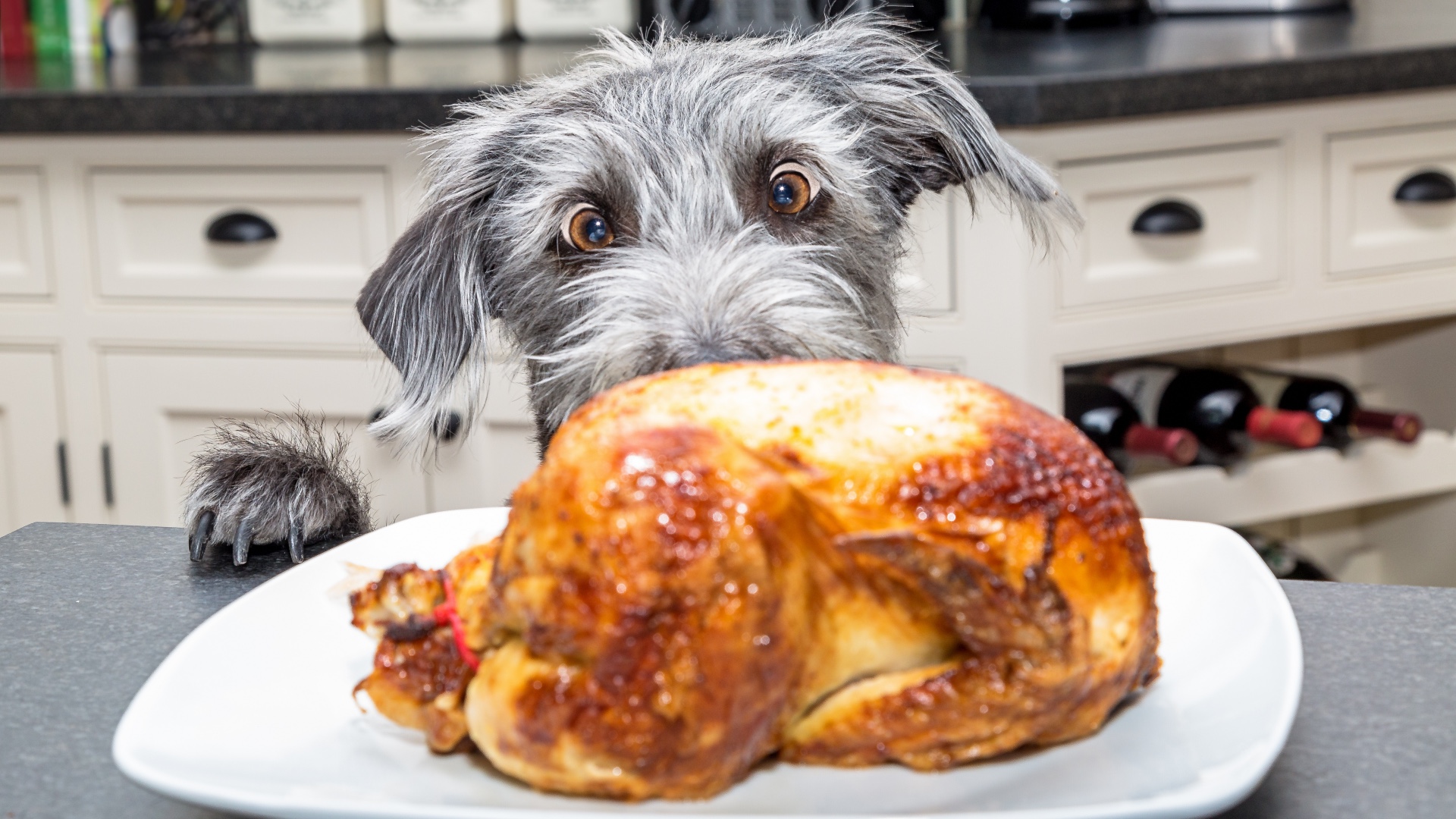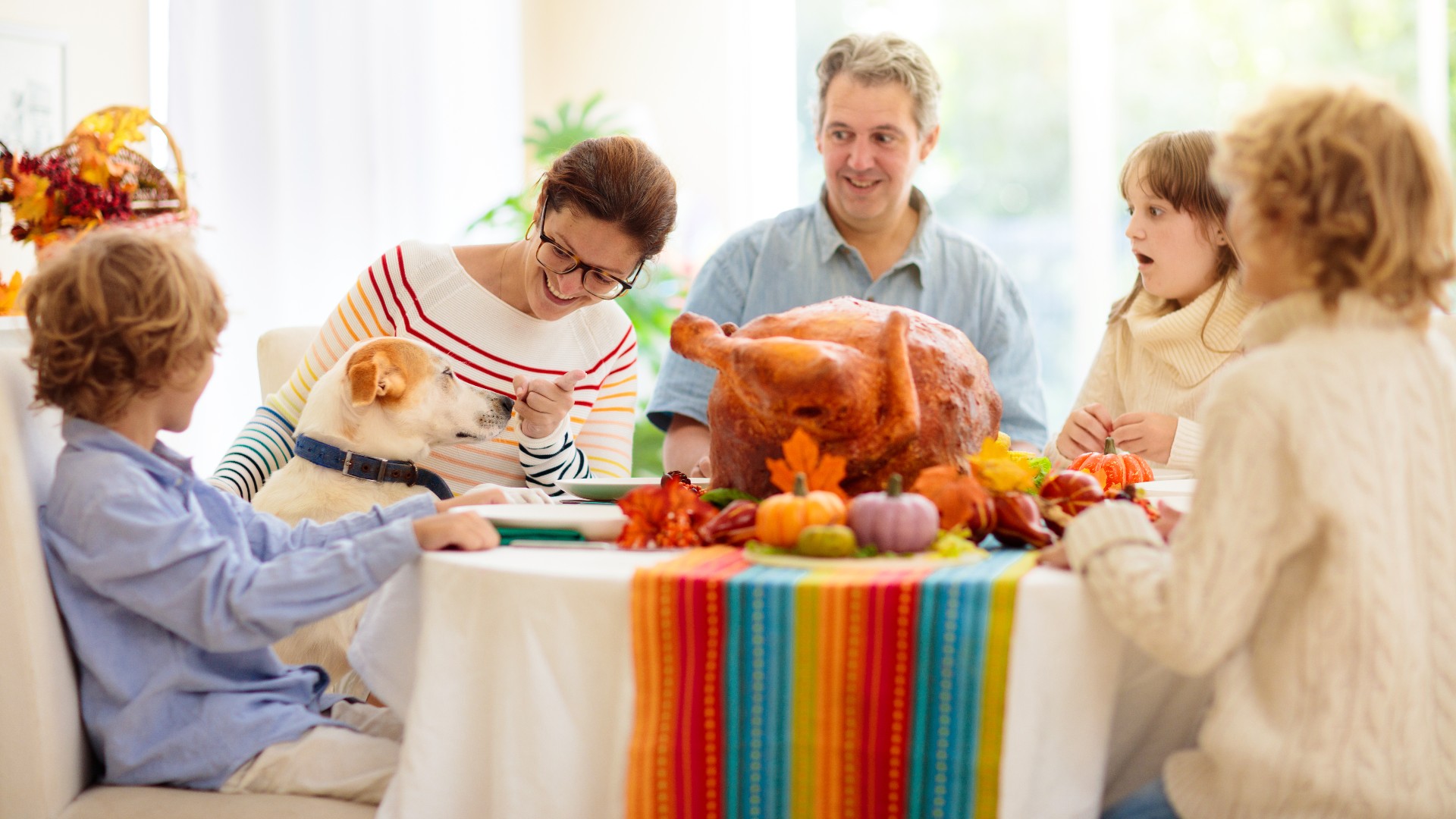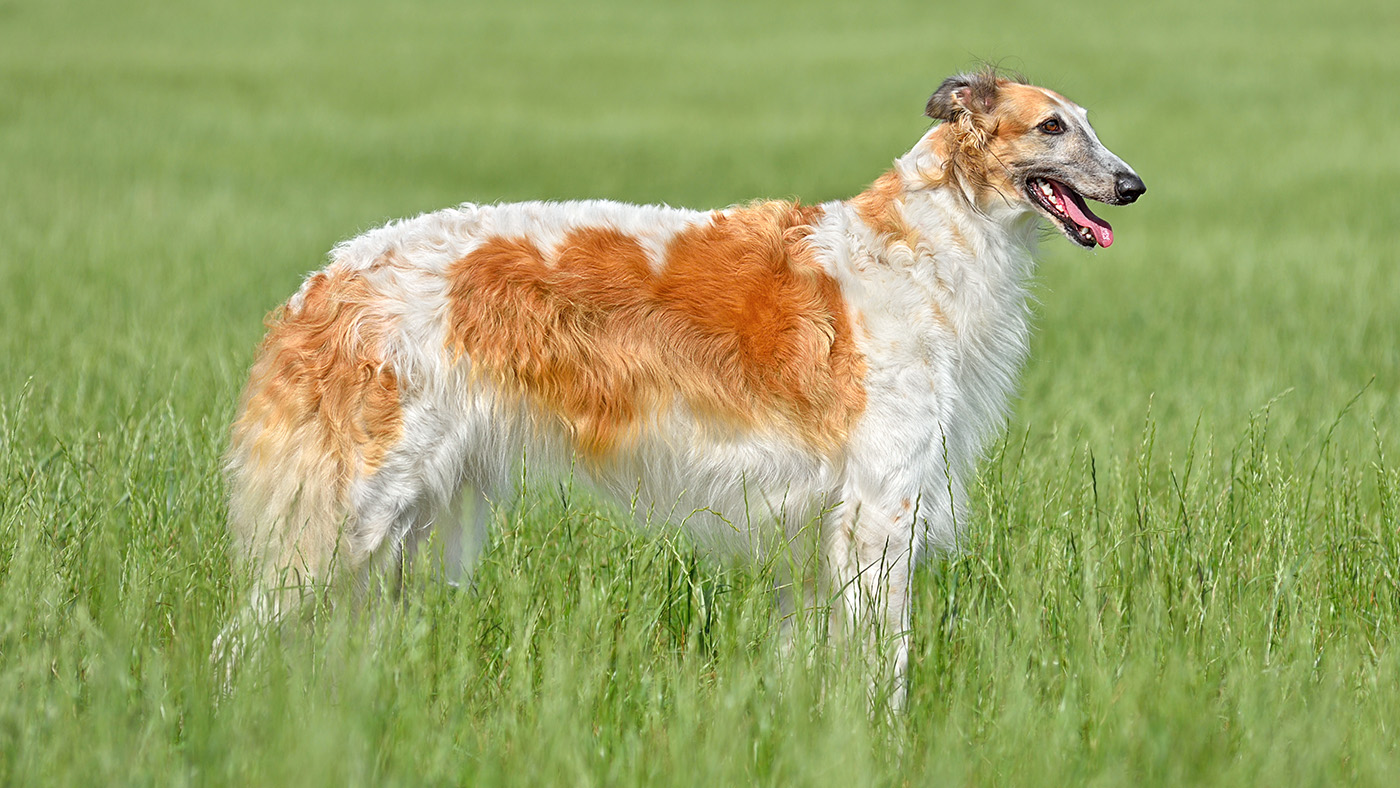Can dogs eat turkey at Thanksgiving?
Can dogs eat turkey? We spoke to a vet to find out whether it's safe to dish out those Thanksgiving leftovers this week.

Can dogs eat turkey? With the holiday season once again upon us, it’s time to stock up on that meaty bird that adorns many a Thanksgiving and Christmas table. But as much as we all love those annual squabbles over who gets the white meat and who gets the brown, there’s only so much turkey we can consume — which can leave us turning to our pups for help.
Thankfully, when it comes to the question of what human foods can dogs eat, turkey makes the cut of foods that are safe for your pooch to consume. That being said, it’s important to always proceed with caution when feeding your pup any food that hasn’t been specifically made for dogs.
That’s because even human foods that have been labeled safe for dogs to eat have the potential to cause digestive distress or other health issues if introduced too quickly, particularly if they’re given in large quantities or prepared with seasonings or other ingredients that aren’t dog-friendly.
If in doubt, we always recommend sticking with traditional dog food and treating your fur friend with the longest lasting dog chew. However, if you’d like to give your pup a treat in the form of some turkey, we sought the advice of expert vet Dr. Joanna Woodnutt to get her thoughts on safe portion sizes and what to do if your dog swallows a bone.

After graduating as a veterinarian from the University of Nottingham, Dr Joanna Woodnutt went on to practice companion animal medicine in the Midlands. She quickly developed a love of consulting and helping clients with medical problems such as dermatology, behavior and nutrition - anything that involved helping clients understand their pets better. Jo has written for countless online and print publications and is a regular contributor for Edition Dog Magazine.
Can dogs eat turkey? And is it safe?
If you’re drowning in turkey leftovers and can’t stomach another sandwich, potpie, pasta dish, or casserole, then you’ll be delighted to learn that dogs can indeed eat turkey - just as long as it’s prepared in a way that’s safe for them to consume.
According to the team at Hill’s Pet Nutrition, whose science-backed approach to dog and cat food has seen them become world leaders in the area of pet nutrition, skinless, unseasoned turkey meat that’s been properly cooked is a perfectly safe addition to your pup’s diet. You can also feed them ground turkey, just as long as it’s plain and has no additives.
That being said, while plain, cooked turkey is not inherently toxic to dogs, Dr. Joanna Woodnutt says there are some things you’ll want to be aware of to ensure you’re feeding turkey to your dog safely:
- Make sure you remove the skin. The high fat content is dangerous for our canine companions and can lead to pancreatitis in dogs, a painful condition that requires prompt treatment.
- Remember, onion and garlic are toxic to dogs, so be sure that you only feed your pup turkey meat and avoid any stuffing.
- Stick to small portions.
- Avoid the bones which are not safe for your dog to consume - we’ll go into more detail about this below.
Rich in protein and packed full of riboflavin and phosphorus, turkey is commonly used in the best dry dog food and wet food because of its high nutrition content. As long as you follow the steps above, you can rest assured that turkey is safe for your dog to eat this holiday season.
Is it safe for dogs to eat turkey bones?
The Princeton Veterinary Hospital states that dogs should never be given turkey bones as poultry bones are both small and brittle, which makes them very dangerous for our canine companions.
Turkey bones will break into sharp pieces when chewed and those sharp pieces could stab your dog in the throat, stomach, or intestines, leading to a potentially life-threatening situation if the bones become lodged and cause a blockage.
Even blockages that don’t require surgery can result in your dog being constipated until they’re able to pass the fragments of bone, and when they do so, this could be a painful process that may result in blood being passed with the stool.
Choking and obstruction of the throat and airways are also very real risks that you want to avoid having to deal with. Not only can all of these health problems potentially result in death, but unless you have the best pet insurance, your dog’s treatment bill may prove costly, especially if emergency surgery is required.
How much meat should I give my dog?

While properly prepared turkey is safe for dogs to eat, it’s important to check with your vet before adding any new food into your pup’s diet, especially if they have a pre-existing medical condition, such as diabetes, or they struggle with obesity.
Treat foods can make up 10% of your dog’s daily calorie intake, with the remaining 90% coming from the best wet dog food or kibble. According to Woodnutt, “a small amount of turkey as a treat is unlikely to cause problems.” She provided us with some general guidelines for feeding fully cooked, skinless turkey meat to your dog this holiday season.
Each piece referenced below refers to a 1-inch cube of turkey meat.
- Extra-small dog (2-20lbs): half a piece of turkey
- Small dog (21-30lbs): 1-2 pieces of turkey
- Medium dog (31-50lbs): 3-4 pieces of turkey
- Large dog (51-90lbs): 5-6 pieces of turkey
- Extra-large dog (91+ lbs): handful of turkey pieces
“However, remember that this is as a treat, and only over a couple of days,” advises Woodnutt. You shouldn’t add this much turkey to their diet on a regular basis without adjusting their calorie intake or it will quickly cause weight gain.”
Feed your pup turkey according to the portion recommendations above, either as a treat or as a food topper in their bowl. If your dog happens to gain access to some extra turkey when your back is turned and you’re concerned that they may have consumed too much, be sure to keep an eye out for the symptoms of pancreatitis (including vomiting, fever, and diarrhea) and seek immediate treatment for your canine companion if you suspect they may be suffering from this painful condition.
What to do if your dog eats a turkey bone
Even the best-behaved dog can lose their manners when holiday turkey is involved and so there’s always a chance that they’ll get hold of some of that forbidden turkey skin or a small bone and ingest it before you have a chance to stop them.
If your dog does consume a turkey bone, first of all, don’t panic, says Woodnutt. “Most bones that have been swallowed will not do any harm, and the dog’s body will likely cope with the bone as nature intended,” she explains.
It’s also worth noting that food aggression in dogs is a common issue that pet parents deal with and even a pup that’s normally very calm and docile may become upset if you try to take a treat away from them, so avoid doing this unless you’re sure your dog will relinquish the bone without any problems.
What you do want to do is to call your vet for advice. They’ll be able to talk you through how you can reduce your dog’s risk of injury and the signs and symptoms to look out for that may indicate the bone has caused some kind of internal injury. According to Woodnutt, these include things like:
- Vomiting
- Lethargy
- Stomach pain (crouching in unusual positions, reluctance to move, growling when touched)
It’s also a good idea to feed your dog soft foods for several days after they’ve swallowed a bone, says Woodnutt. “If you can, and the bone has only just been swallowed, feed your dog a small amount of bread – this may help to ‘coat’ the bone and help it move through the gut without doing any harm.”
A turkey bone will take roughly 72 hours to be digested and to move into the bowel ready for elimination. Keep an eye on your dog and their stools for the duration of this time and avoid overly-strenuous exercise and rough play until the bone has passed to minimize the risk of injury.
PetsRadar Newsletter
Get the best advice, tips and top tech for your beloved Pets

Kathryn is a freelance writer who has been a member of the PetsRadar family since it launched in 2020. Highly experienced in her field, she's driven by a desire to provide pet parents with accurate, timely, and informative content that enables them to provide their fur friends with everything they need to thrive. Kathryn works closely with vets and trainers to ensure all articles offer the most up-to-date information across a range of pet-related fields, from insights into health and behavior issues to tips on products and training. When she’s not busy crafting the perfect sentence for her features, buying guides and news pieces, she can be found hanging out with her family (which includes one super sassy cat), drinking copious amounts of Jasmine tea and reading all the books.
